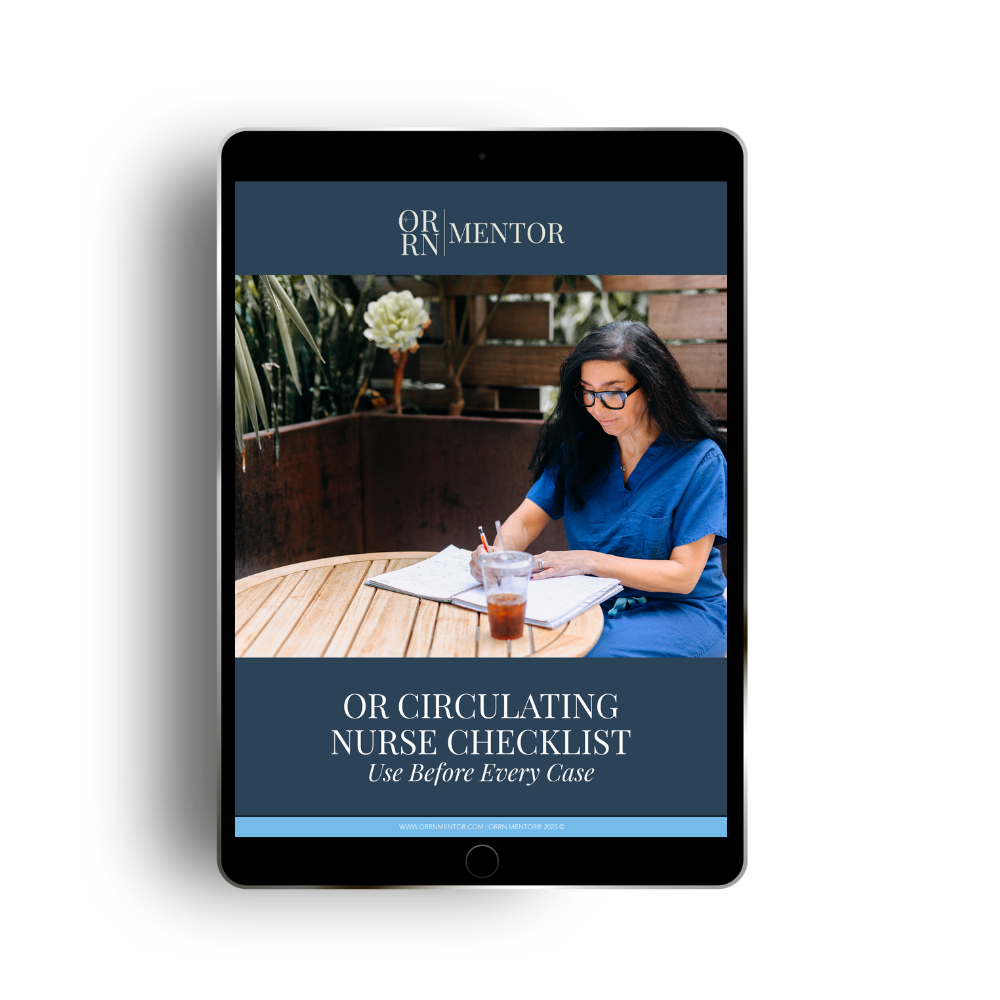Operating Room Nurse: It’s Not for Everyone

But if it’s for you, there’s no place you’d rather be.
Behind the Double Doors
From the outside, the operating suite can look like an episode of high-tech choreography—lights blazing, instruments gleaming, a team moving in silent sync. Step through those doors, though, and you discover the truth: this world demands unwavering focus, mental agility, and the emotional stamina to meet life-and-death moments head-on. OR nursing isn’t merely another specialty on the hospital roster; it’s a calling that tests every facet of your professional—and personal—self.
So, before you commit to the sterile field, ask yourself: Is the OR truly the arena where you’ll thrive? Here’s an unfiltered look at why it isn’t for everyone—and how to know if it is for you.
1. Adrenaline, Yes—But Also Stillness
Surgery is equal parts bursts of intensity and long stretches of hyper-focused stillness. You might spend two hours holding retractors without flinching, then pivot in seconds when a sudden bleed erupts. Not everyone handles that duality well. If you crave predictable pacing, med-surg or outpatient care may suit you better. In the OR, you must find calm in monotony and clarity in chaos—often in the same case.
Ask yourself: Do I stay engaged when my body is still and my mind can’t wander? Can I spring into action instantly when the situation flips?
2. Communication Without Chatter
Contrary to popular belief, the OR is not a nonstop verbal zone. Much of our teamwork is nonverbal—eye contact for instrument hand-offs, subtle gestures when counting sponges, a raised brow that says, “We need the vascular clamp now.” If you rely on constant conversation to feel connected, this environment may feel isolating.
Yet silence doesn’t mean lack of support. It means communication distilled to its most efficient form—every word (and gesture) has weight. Mastering this “surgical shorthand” is part of the craft.
3. Zero Room for Guesswork
In primary care you can step out, look something up, and return with an answer. In the OR, hesitation can cost precious seconds—or a life. You must anticipate the surgeon’s moves, have Plan B and C at the ready, and know your instruments as intimately as your closest friend. That relentless preparedness can feel overwhelming if you dislike homework.
Pro Tip: The scrub tech’s mayo stand isn’t just a tool tray; it’s a crystal ball forecasting the next 10 minutes of surgery. Learn to read it early.
4. Emotional Whiplash
Morning case: a routine laparoscopic cholecystectomy with easy banter and end-of-case high-fives. Afternoon case: an emergent trauma where CPR is performed on the table. The mental shift from triumph to tragedy in a single shift can be jarring. Some nurses carry that weight home like lead aprons; others process, compartmentalize, and return the next day clear-eyed.
Healthy coping mechanisms are non-negotiable—spin class, journaling, therapy, whatever keeps your mental circuitry balanced.
5. The Learning Never Stops (Seriously, Never)
New robotic platforms, suture anchors, laser fibers, and tissue sealants debut constantly. Regulations shift. Surgeons change preferences. The best OR nurses treat every case as a micro-fellowship: review, rehearse, refine. If lifelong learning thrills you, welcome aboard. If mandatory in-services already feel like a burden, the OR will magnify that frustration tenfold.
6. Teamwork on a Molecular Level
In many units, a weak link slows things down; in the OR, a weak link endangers lives. Trust among the circulating nurse, scrub, anesthesia team, and surgeon is sacred. Ego clashes, passive-aggressive notes, or “that’s not my job” attitudes? Left outside with your street shoes. You must advocate fiercely for your patient and for smooth team dynamics—often in the same breath.
Remember: “Stay organized, anticipate, communicate.” Those three survival tips aren’t clichés; they’re the ligaments that hold the OR together.
7. Physical Demands You Don’t Read About
Lead aprons that compress your spine, microscopic sutures that strain your vision, hours standing on unforgiving floors—it’s an ergonomic obstacle course. Pilates, yoga, and strength training aren’t hobbies; they’re job requirements disguised as self-care. Your future self will thank you.
Is It Worth It?
Ask any seasoned OR nurse why they stay and you’ll hear variations on the same theme:
- The privilege of witnessing the inside of the human body never gets old.
- The instant, tangible impact of a successful case is addictive.
- The camaraderie is unlike any other unit—they’re your “surgical family.”
- You develop a sixth sense for problem-solving that spills into every area of life.
If that lights up your professional soul, the sacrifices shrink. The 5 a.m. call shifts, the marathon cases, the flood of new technology—each becomes fuel for your growth.
How to Test the Waters
- Shadow First: Spend a full shift observing. Notice how the nurses queue up instrumentation, manage counts, and keep their composure.
- Find a Mentor: A seasoned OR preceptor can decode unspoken rules faster than any textbook.
- Invest in Education: Webinars, simulations, and specialty certifications (CNOR) not only sharpen skills but prove—to yourself and employers—that you’re committed.
- Practice Micro-Mental Rehearsals: Before each case, close your eyes and visualize every step from incision to closure. You’ll be amazed how much smoother reality becomes.
Final Thoughts
Operating room nursing is not for everyone, and that’s okay. Hospitals need stellar bedside nurses, public health advocates, administrators, and researchers just as badly. But if you thrive on precision, preparation, and the electric hum of a surgical suite, the OR may feel like destiny.
Remember: every successful surgery begins long before the first incision—it starts with you. Review procedures, anticipate needs, hone your skills, and show up ready to perform with purpose and poise.
And to my fellow novice nurses who decide to step into this arena: keep learning, keep growing, and, above all, keep sight of why you started. The OR is no place for guesswork—and that’s exactly what makes it so extraordinary.
You’ve got this. 💪🩺







